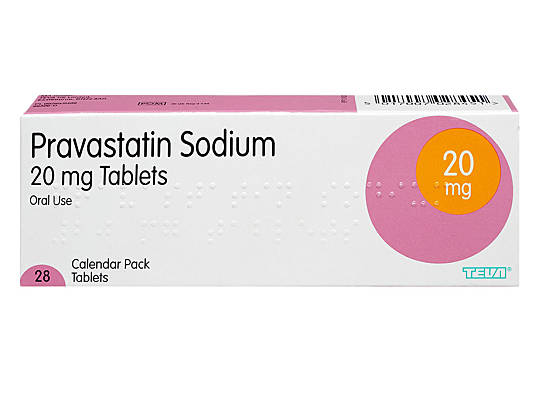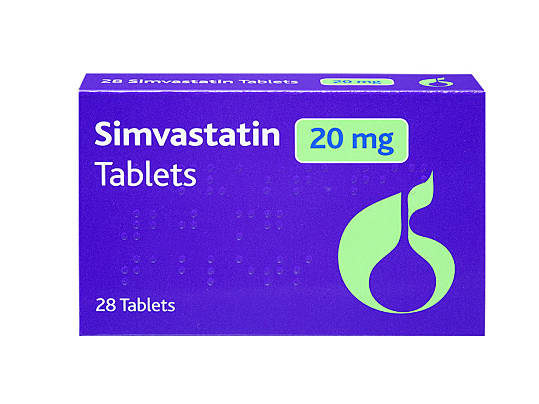Order Consultation for High Cholesterol Treatment
Order a prescription for your pharmacy of choice for treating high cholesterol.
To order a treatment, fill in a brief medical questionnaire. A doctor will review your order and prescribe treatment if it’s right for you. How to Order
Cholesterol plays an important role in your body being healthy. It’s a fatty substance, which is mostly made in the liver.
Everybody has cholesterol circulating in their body. However, if your cholesterol level becomes too high it can affect your health, so it’s good to keep it in check.
Simply complete our brief medical questionnaire, and a ZAVA doctor will then check to see if treatment is right for you. They will then issue your prescription to a local pharmacy in Ireland or choose to have your medication delivered directly to your door.



No results found.
Please check your spelling or try another treatment name.



About cholesterol level treatments
What is cholesterol?
Cholesterol is a fatty, waxy substance made by the liver. It’s also found in some foods, particularly those that are high in saturated fat. Cholesterol helps:
- our cells to work properly
- our body to produce vitamin D, hormones, and bile
There are two main forms of cholesterol in the body:
- Good – high-density lipoprotein (HDL) cholesterol
- Bad – low-density lipoprotein (LDL) cholesterol
LDL is known as bad cholesterol because having too much circulating in the blood can be harmful. On the other hand, HDL or good cholesterol can have protective benefits. Understanding the levels of cholesterol in your body can help to be aware of your risk of heart disease.
What’s a normal level of cholesterol?
A cholesterol test will check 5 different areas related to your blood cholesterol levels. The normal ranges are listed below:
- Triglycerides (normal is less than 2.3 mmol/L)
- Total Cholesterol (normal is less than 5.0 mmol/L)
- HDL Cholesterol (normal is more than 1.1 mmol/L)
- LDL Cholesterol (normal is up to 3.0 mmol/L)
- Non-HDL Cholesterol (normal is less than 3.9 mmol/L)
Having too low HDL cholesterol (number 3) can be unhealthy, and so can having too high levels of the others in the list (numbers 1, 2, 4 and 5). Either or both of these situations can lead to a higher risk of heart attacks and strokes.
A cholesterol test can be used to work out your risk of developing heart disease or having a stroke. Your doctor will be able to tell you if you have a high, moderate, or low risk of developing heart disease or having a stroke within the next decade.
Other factors will be taken into consideration as well as your cholesterol level. These include your:
- body mass index (BMI)
- blood pressure
- age
- gender
- family history
- ethnicity – as some ethnic groups have a higher risk of heart diseases and strokes
What are the signs and symptoms of high cholesterol?
High cholesterol is often referred to as the “silent killer”, as there are no obvious signs or symptoms. The first signs of high cholesterol can be:
- heart attack
- stroke
- angina
- pain when walking
You may be more likely to have high cholesterol if you:
- have a parent, sibling or child with high cholesterol
- have a parent or sibling who’s had a heart attack or angina before the age of 50
- are a type 2 diabetic
- eat a lot of saturated or animal fat in your diet
- don’t get enough exercise
- have fatty deposits in your eyelids
However, it’s important to remember that not everyone with the signs and symptoms listed above will have high cholesterol.
Should I get tested for high cholesterol?
It’s recommended that everyone over the age of 40 has their cholesterol tested at least every five years.
This is to help help prevent heart disease, and to make sure the signs and symptoms are spotted as early as possible.
You’re at risk of having high cholesterol and should get tested if you:
- have had people in your family with high cholesterol
- have had people in your family who’ve had heart attacks or angina
- have had people in your family who’ve had a stroke
- are a type 2 diabetic
- don’t get enough exercise
- eat a lot of saturated fat or animal fat in your diet
- have had people in your family who’ve had heart disease when they were young
- are overweight or obese
- smoke
- are from a South Asian ethnic group
How can I check my cholesterol levels at home?
We offer a home blood test to check your cholesterol levels at home:
- We’ll send you a test kit for you to use at home, which you’ll get within 1-2 days of placing your order
- You’ll need to provide a small blood sample, and use the prepaid envelope we provide in the kit to post it to our partner lab
- Your results will be ready 2 to 3 days after your sample reaches the lab, and we’ll then let you know they can be viewed in your account
You can also request a blood test from your doctor. In this case, it will be a full blood test, where a sample will be taken from a vein in your arm.
How can I lower my cholesterol?
There are lifestyle changes you can make to lower your cholesterol levels.
Exercise
Exercise lowers your bad cholesterol, and increases your good cholesterol. It also helps you to lose weight, which can contribute to a lower cholesterol level.
If your cholesterol level is high, you should aim to:
- do 30 minutes per day of moderate activity, e.g. walking, jogging, swimming, or cycling
- include some moderate or high intensity resistance training
Diet
What you eat is a huge factor in lowering cholesterol levels. Many foods contain high levels of cholesterol, and some can help reduce levels.
To help lower your cholesterol level, you could try to eat more of certain foods:
- fruit and vegetables
- whole grain bread and cereals
- nuts
- pulses
- seeds
- fish
- olive oil
- foods high in fibre and antioxidants
- and less dairy and red meat
Not all of these foods aren’t low in fat, but the fats they include are monounsaturated, or 'healthy', fats. Drinking less alcohol can also help maintain health cholesterol levels.
Treatments to lower cholesterol levels
Statins
These are a type of medicine used to treat high cholesterol. However, like all medications, they can cause side effects. Statins work by reducing the amount of LDL cholesterol produced by the liver.
Quitting smoking
You can also help to reduce cholesterol by quitting smoking, if you are a smoker.
What treatments can I get?
The treatments available for lowering cholesterol are:
- Statins
- Ezetimibe
Statins
There is an enzyme in the liver that helps to make cholesterol – statins work by stopping this enzyme working. You could be given one of the following statins:
- Atorvastatin
- Simvastatin
- Rosuvastatin
This medication is only prescribed to people who have a high risk of heart disease. Statins usually need to be taken for the rest of your life, because your risk of having a heart attack or a stroke increases as you get older.
Ezetimibe
Ezetimibe stops cholesterol from being absorbed from food and bile. It doesn’t as work as well as statins, but is less likely to cause side effects. So, if statins aren’t right for you, you may be prescribed Ezetimibe.
Side effects include:
- headaches
- diarrhoea
- stomach ache
- tiredness
- back pain
How to place your order
Just follow these simple steps:
- If you’re ordering treatment, you need to have been using it for at least 3 months, and have had blood tests to checks your liver function
- For treatments, fill out a short online assessment about your health and lifestyle
- Place an order for your preferred treatment option
- A ZAVA Doctor will check your assessment to see if your order is right for you
- If your order is right for you, then a prescription can be issued to your preferred local pharmacy
Common side effects of treatment
One treatment option for high cholesterol is statins. The most common side effects of statins are:
- headaches
- feeling dizzy (nausea)
- runny or blocked nose
- nosebleeds
- a sore throat
- joint and muscle pain
- constipation
- diarrhoea
- indigestion
- flatulence
- high blood sugar level

Dr Nicholas Antonakopoulos graduated from the University of London in 2006. He did his postgraduate training in hospitals in the London area, and he trained for four years in Trauma and Orthopaedic Surgery before completing his training in General practice in 2015.
Meet our doctorsLast reviewed: 13 Nov 2018
-
Cholesterol Treatment Trialists’ Collaborators (2005). Efficacy and safety of cholesterol-lowering treatment: prospective meta-analysis of data from 90056 participants in 14 randomised trials of statins. Lancet, Sep; 366: 1267-1278. [online] Available at: https://pubmed.ncbi.nlm.nih.gov/16214597/. [accessed 13th May 2021]
-
Goldstein, J. L. and Brown, M. S. (2015). A century of cholesterol and coronaries: from plaques to genes to statins. Cell, Mar; 161: 161-172. [online] Available at: https://pubmed.ncbi.nlm.nih.gov/25815993/. [accessed 13th May 2021]
-
Heart UK. (2018). Cholesterol – the silent killer. Heart UK. [online] Available at: https://www.heartuk.org.uk/cholesterol/what-is-high-cholesterol [accessed 8th November 2018].
-
Kastorini, C. M. et al (2011). The Effect of the Mediterranean Diet on Metabolic Syndrome and its Compounds. Journal of American College of Cardiology, Mar; 15: 1299-1313. [online] Available at: https://pubmed.ncbi.nlm.nih.gov/21392646/. [accessed 13th May 2021]
-
Lab Tests Online UK. (2015). Cholesterol Test. The Association for Clinical Biochemistry and Laboratory Medicine. [online] Available at: https://labtestsonline.org.uk/tests/cholesterol-test [accessed 8th November 2018].






